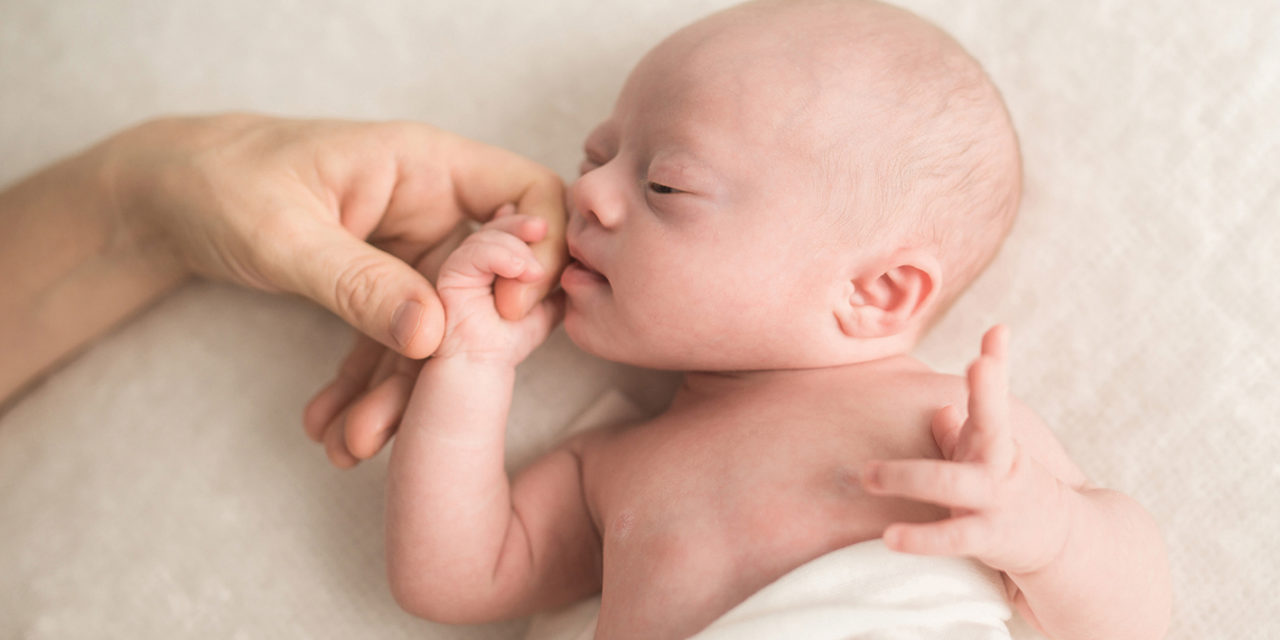The Department of Justice (DOJ) recently appeared before the Sixth Circuit Court of Appeals as a friend-of-the-court to help defend Ohio’s Anti-Discrimination Bill, which protects preborn babies with Down syndrome from abortion.
Passed in 2017, the law is designed to protect women and families from the pressures of certain medical professionals that recommend abortion for preborn babies with Down syndrome. Though enforcement of the law was initially suspended by the Sixth Circuit, in a rather unusual move, the majority of the judges on the Sixth Circuit voted to rehear the case “before the entire bench.”
The Daily Citizen recently had the opportunity to interview Eric Dreiband, Assistant Attorney General for the Civil Rights Division, one of the representatives from the DOJ who added his voice to the bill.
“The Department of Justice has the authority to file friend-of-the-court briefs and particularly in cases involving whether or not a particular law complies with the United States Constitution,” Assistant Attorney General Dreiband said. “We were aware of the case going to the full Sixth Circuit of the U.S. Court of Appeals. When we determined that the case involved a question on whether Ohio’s Anti-Discrimination Law is constitutional, we felt that it was important, on behalf of President Donald Trump and Attorney General William Barr, that we defend the Ohio law and support the state of Ohio before the U.S. Court of Appeals.”
The Civil Rights Division of the DOJ, “created in 1957 by the enactment of the Civil Rights Act, works to uphold the civil and constitutional rights of all Americans, particularly some of the most vulnerable members of our society. The Division enforces federal statues prohibiting discrimination on the basis of race, color, sex, disability, religion, familial status and national origin.”
There perhaps is no more vulnerable population in the United States than preborn babies inside the womb, especially when it comes to those with diagnosed disabilities, both physical and mental. For many women and couples who receive this prenatal diagnosis, there can be immense pressure from certain medical professionals to abort.
“This bill serves several important purposes since it protects individuals with disabilities from prejudice and indifference, and it protects the medical profession from harm to its integrity and reputation,” Assistant Attorney General Dreiband said. “The law wards against the slippery slope of medical involvement in race or sex-based abortions. As written, the law vindicates an important governmental interest that people with Down syndrome have lives worth protecting. It also protects women by separating them from these potentially coercive abortion providers, and there is evidence in the case that some portion of medical providers only give a one-sided message or pressure women to abort because of the Down syndrome diagnosis.
“We at the Department of Justice swear an oath to defend the Constitution of the United States and so it is our privilege, duty and honor to do that in this case and other cases. In this case, we have a law that protects disabled people from prejudice and negative and inaccurate stereotypes. It replaces these negative messages with a public statement that the lives of individuals with Down syndrome are as valuable as the lives of everyone else and that they’re worth protecting. For us, it was a real honor to file this friend-of-the-court brief on behalf of President Trump and Attorney General Barr and appear in person before the entire Sixth Circuit and defend Ohio’s anti-discrimination law.
“One of the fundamental principles of the United States and its Constitution is that we were all equal before the law. At the U.S. DOJ, we have a duty to respect the principle that we all have value and that human life is sacred. To that end, the state of Ohio has enacted this anti-discrimination law and that law complies fully with the U.S. Constitution so we felt that it was important that we stand with the State of Ohio and support their effort to defend their law because it is also our responsibility to defend the Constitution and the people of the United States.”
This law isn’t about restricting access to abortion, but instead making sure women are protected from a coercive abortionist or physician that pressures her to have an abortion based on the prenatal diagnosis.
“A medical diagnosis of Down syndrome is not a medical issue that threatens the life or health of a woman who is pregnant,” Assistant Attorney General Dreiband said. “An abortion provider doesn’t have any medical interest in advising a woman to have an abortion because of a prenatal diagnosis.”
At this point, the case remains before the Sixth Circuit, with a decision expected sometime in the future. There’s a lot of optimism that this case may spark a change and eventually stop the eugenic practice of abortion against preborn babies with Down syndrome.
Follow Brittany on Twitter @brittanyraymer.






